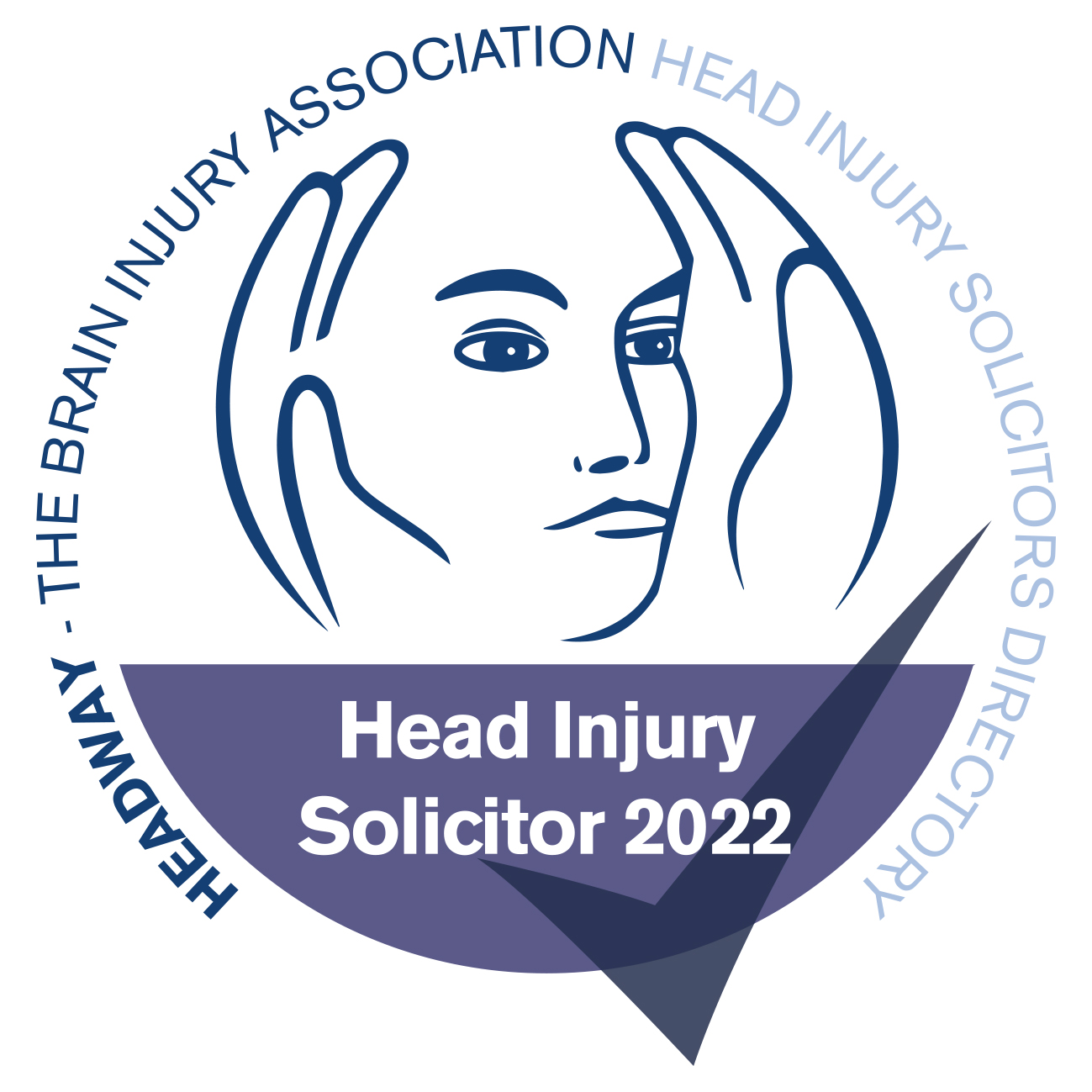Brain Injury Medical Negligence Claims
Manchester-based Potter Rees Dolan is here to help if medical negligence has resulted in a brain injury for you or a loved one. Brain injuries can have a devastating impact on the individual affected and those around them and can lead to a lifetime of medical complications, emotional stress and financial hardship, which is why we're here to support you.
We understand how difficult it will be for you and your family in this situation, and our team of expert solicitors has a real insight into the devastation brain injuries caused by medical negligence and will use their expertise to help where they can.
That’s why you can rely on us at Potter Rees Dolan to help you fight for the financial award you deserve. Medical negligence payouts for a brain injury can be quite substantial since brain injuries often have a huge impact on the victim’s daily life. They can pay for a lifetime of care and therapy for the affected individual, as well as helping to ensure their home is properly designed and equipped, improving their quality of life.
Our highly-regarded clinical negligence team is made up of Helen Dolan, Helen Budge, Lesley Herbertson and Gill Edwards, all of whom feature in either the prestigious Legal 500 and Chambers guides. One of our guiding principles is to personalise our service for every single person we work with and put our clients and their best interests first.
Our team is here for you and ready to help you get the support you need. If you or someone you know has sustained a brain injury due to medical negligence, give us a call on 0800 027 2557. Alternatively, if you'd like one of our lawyers to call you back, you can fill in the contact form on this page.
What are the common causes of brain injuries from medical negligence?
An acquired brain injury occurs when the brain sustains damage that affects the way in which it functions. There are many possible causes, including:
- Traumatic brain injury (TBI) - a blow or jolt to the head or a penetrating head injury, for example, due to a fall, road accident or assault
- Stroke - a disruption of the blood supply to the brain
- Hypoxia (or anoxia) - a disruption of the oxygen supply to the brain
- An infection - for example, due to meningitis or encephalitis
- Tumours - these may be cancerous or benign
What kind of medical negligence can lead to a brain injury?
You may have been a victim of medical negligence if mistakes made by doctors, surgeons or other healthcare professionals have led you to suffer a brain injury. Examples of clinical negligence include:
- mistakes during surgery
- complications after surgery
- failure to diagnose or treat a cerebral bleed
- delays in treating raised intracranial pressure, for example due to a traumatic brain injury
- mismanagement of medication resulting in brain injury
- delays in the diagnosis and treatment of brain tumours or abscesses
Making a brain injury medical negligence claim
Medical negligence-related brain damage can be extremely devastating and can have huge negative consequences for the patient and their family. Making a medical negligence compensation claim for a brain injury can help you to cope with the injury and assist you in paying for any technology or equipment that you may need. It will also help you pay for any additional living expenses that may occur due to the injury, including the cost of medical treatments and loss of income through not being able to work.
The brain controls our moods and emotions, our mobility, and how our body functions. It is also very sensitive to injuries. In severe cases, trauma to the brain can lead to a range of symptoms such as loss of function, such as the ability to speak or move. It can also result in a drastic change in your personality. However, no matter how severe the injury is, it can have a huge impact on the person's life as well as the lives of their family. It is vital for the victim to seek compensation for a medical negligence brain injury to help cover the costs of everything that may come up with this type of injury.
Brain injuries can affect anyone at any time. The severity of a brain injury can vary greatly and will often lead to a number of physical and mental disabilities. Some people may suffer milder effects such as memory loss and mood swings. Others may experience more severe effects, such as the loss of the ability to walk or talk, and may require care 24 hours a day.
For people who have suffered from a brain injury such as a stroke, the brain will take a while to recover, but it will likely never fully recover. There will usually be some lasting effects that the victim and their family will have to learn to manage.
Here at Potter Rees Dolan, we have dealt with a range of brain injury compensation claims, including the following:
- Bleeding on the brain
- Head trauma resulting in loss of consciousness
- Skull fractures
- Facial injuries
- Scalp lacerations and injuries
What can Potter Rees Dolan do?
Potter Rees Dolan’s clinical negligence team is known as one of the best in the UK. With comprehensive medical insight and a combined experience in serious injury law of over 60 years, our team has an unwavering dedication to helping families recover the compensation they deserve. Our dedicated medical negligence solicitors for brain injury compensation claims are here to help you get the brain injury payout you deserve.
About Helen Dolan, head of the department, Chambers 2022 says she is “well versed in cases surrounding surgical negligence resulting in brain damage”. She is described as “very dynamic and forward-thinking” and “is a confident and friendly lawyer who offers sound advice and instils confidence in her clients”.
The same publication said Lesley Herbertson “is well equipped to deal with delays in diagnosis, birth injury claims and cases arising from surgical negligence, leading to spinal and brain injuries”.
Meanwhile, Gill Edwards is described as being “incredibly knowledgeable and has a calm, friendly and reassuring manner” and “offers exceptionally good service to her clients”.
Additionally, Chambers 2022 calls our clinical negligence team as a “well-regarded team with an impressive caseload of complex clinical negligence work”, while sources say “they are professional, precise and fast at responding to calls and emails” and “it’s clear that they place high value on their staff and their client relationships”.
We regularly receive positive feedback for the empathy and care we provide through our services. We specialise in serious and catastrophic injuries, so we know how difficult it can be to live with a severe disability. As such, we aim to make the claims process as stress-free for you and your family as we can.
We understand that making a compensation claim for a brain injury caused by medical negligence can be a daunting prospect. We will assist you in gathering all of the necessary evidence to build a strong case, giving you the best chance of recovering the right amount of compensation.
We will progress your claim as quickly as possible and, where we can, we will help you to obtain an early interim award, helping you to fund your rehabilitation.
- Bleeding on the brain
- Birth injuries
- Cerebral palsy
- Brain aneurysms
- Meningitis
- Facial injury
- Head trauma leading to a loss of consciousness
- Scalp lacerations and injuries
- Subdural haematomas
- Strokes
- Skull fracture
- Subarachnoid haemorrhage
There are various types of medical negligence that could lead to any of the above examples of brain injuries. Some examples of medical negligence that could lead to head trauma include:
- Medical negligence when delivering a baby
- Surgical medical negligence
- Poor or incorrect treatment by hospital staff
- Misdiagnosis of health problems that lead to brain injuries
- Late diagnosis of health problems that lead to brain injuries
Support for brain injury sufferers
When a brain injury first occurs, it can be a lonely time for the individual and their family, who are full of questions and worry about what the future will hold. However, there is an extensive network of support that can help to lighten the burden, including emotional support, advice on benefits, educational needs, support with physical disabilities, and legal advice.
A great first port of call is a brain injury charity, which can be found through a simple online search. A list of the main brain injury charities include:
- Headway, which is dedicated to helping people with brain injuries on a local and national scale. The charity runs a network of groups and branches throughout the UK and offers many excellent services, including rehabilitation programmes, carer support and respite care.
- BASIC, which is a Manchester-based charity that offers rehabilitation services for people who need help once they have been discharged from the hospital.
- Brain Injury Rehabilitation and Development (BIRD), which provides treatment for people with brain injuries and learning difficulties to help improve their quality of life.
- Cerebra, which provides support services and practical help to improve the quality of life for children with neurological conditions and help their families.
- The Child Brain Injury Trust (CBIT), which supports children who have suffered an acquired brain injury.
FAQs
How does a healthy brain work?
The brain is the most complex organ in the human body. It is part of the central nervous system and controls our bodily functions, personality, consciousness, speech, motor functions and much more.
Brains are divided into numerous sections, with the largest and most significant being the cerebrum. This holds most of your higher brain functions and is responsible for coordinating sensory and neural activity. It is also responsible for starting and coordinating voluntary activity in the body, such as movement.
The cerebrum is divided into two halves, called hemispheres. Each hemisphere has a series of sub-sections called lobes, with their own dedicated function:
- Frontal lobe - used for decision-making, where your personality is formed and where high-level mental processes such as planning take place. It’s also where your short-term memory is housed
- Temporal lobe - responsible for processing auditory information sent from your ears, but also functions as your language centre, visual memory and stores your emotions
- Occipital lobe - used for processing information sent from your eyes. This part of your brain processes information very quickly, so your brain can keep up with what you see. It helps you distinguish colour, fast-moving objects and other visual cues
- Parietal lobe - processes information related to your other senses, such as taste and touch
There are other parts of the brain housed within each of these lobes, such as the thalamus, hippocampus and the cerebellum. Each of these areas of the brain are responsible for very specific functions, such as long-term memory storage and the release of hormones.
What are the most common types of brain injury?
The brain governs every single part of your body, and, as a result, brain injuries can have devastating consequences for those that suffer them.
Brain injuries often lead to a change in personality, memory damage, severe loss of mobility and loss or impairment of speech. Usually, the part of the brain that is injured determines the impact of the injury on the sufferer.
Some examples of conditions that can lead to brain injuries include:
- Subarachnoid haemorrhage
- Intracerebral haemorrhage
- Oedema
- Brain aneurysm
- Brain tumour or abscess
- Stroke
- Meningitis
- Cerebral palsy
What lifestyle adjustments are needed after a brain injury?
Brain injury sufferers often require lifelong help and support for themselves and their loved ones. Factors that may need to be considered include:
- Appointing carers to assist with day-to-day tasks
- Undergoing rehabilitation to retrain the body to perform tasks such as walking or holding objects
- Making alterations to your home to improve accessibility, including the purchase of specialist equipment
- Receiving speech therapy to improve language and communication skills
- Relearning how to perform routine jobs and activities
Compensation is therefore extremely important to ensure victims of brain injuries caused by medical negligence can afford to cover the cost of such important changes to their lives.
What are the symptoms of a brain injury?
Brain damage can vary significantly, depending on the type of brain injury. Some symptoms of a mild brain injury may only be temporary and can include the following:
- Headaches
- Confusion
- Nausea
- Memory problems
If the brain injury is moderate, the same symptoms may be present. However, they will likely be more obvious and will tend to last for longer periods.
If you have suffered from a severe brain injury, then you may experience the following symptoms:
- Cognitive disabilities
- Physical disabilities
- Behavioural disabilities
What compensation can I claim for a brain injury?
If you have a brain injury due to medical negligence, you and your family are entitled to claim significant compensation for the pain and suffering caused, plus for any loss of income and the costs of any care or assistance needed.
Below are some examples of medical negligence payouts for a brain injury:
- Loss of income claims - If your household loses a substantial amount of income due to the brain injury caused by medical negligence, it is reasonable for you to expect compensation to cover these losses
- Pain and suffering - These compensation claims can relate to the worry caused to your family or your loss of independence due to the medical negligence
- Assistance and care - Any care costs that incur after the injury can also be claimed for, including any adaptations to the home that are needed
You may also be able to claim for certain transportation costs, as well as a range of other miscellaneous expenses.
Contact us today
Please do not delay - give us a call on 0800 027 2557. We understand from first-hand experience how devastating brain injuries can be, and we’re ready to get you the help and support you deserve.
If you’d like one of our solicitors to give you a call back, fill out form on the side of the page or visit our contact page. If there is someone specific at the firm you would like to speak to, visit their profile on our people page.
Useful Information
Brain Aneurysm
An aneurysm is a bulge in a blood vessel caused by a weakness in the blood vessel wall, usually where it branches.
As blood passes through the weakened blood vessel, the blood pressure causes a small area to bulge outwards like a balloon.
The medical term for an aneurysm that develops inside the brain is an intracranial or cerebral aneurysm.
Most brain aneurysms only cause noticeable symptoms if they burst (rupture).
This leads to an extremely serious condition known as a subarachnoid haemorrhage, where bleeding caused by the ruptured aneurysm can cause extensive brain damage.
If a brain aneurysm is detected before it ruptures, treatment may be recommended to prevent it rupturing in future. Most aneurysms won't rupture, so treatment is only carried out if the risk of a rupture is particularly high.
Encephalitis
This is a very rare condition but is very serious as it causes inflammation on the brain.
Symptoms can be flu-like, such as high temperature, headache and joint pain. More serious symptoms can then develop in a matter of hours. These can include changes in personality and behaviour as well as confusion or drowsiness and even seizures, These are classed as a medical emergency and an ambulance should be called immediately.
There are different types of encephalitis with various causes such as a viral infection or the immune system reacting to a previous infection. Treatment can include anti-viral medication or steroid injections.
Some people make a full recovery, some experience memory loss or epilepsy and some suffer permanent brain damage.
Here you can read about a PotterReesDolan client who suffered a brain injury after her encephalitis was misdiagnosed and treatment was delayed.
Epilepsy
This condition affects the brain and causes repeated seizures.
Seizures occur when the neurons in the brain fire off abnormal bursts of electrical impulses which can cause the brain and body to behave strangely.
Neurons usually conduct electrical signals and act as chemical messengers to communication to each other in the brain.
There are an estimated 500,000 people in the UK who have epilepsy and the severity of their seizures can differ from person to person; from going into a trance like state for a few seconds to losing consciousness and having convulsions.
Epilepsy can be diagnosed in childhood in some people but is also a very common side effect to a brain injury.
Medication can be prescribed but anti-epileptic drugs cannot cure the condition but are effective in controlling seizures.
Some people with epilepsy may undergo surgery to remove a specific area of the brain that is affected or install an electrical device to help control seizures.
Subarachnoid Haemorrhage
This is an uncommon type of stroke caused by bleeding on the surface of the brain. It's a very serious condition and can be fatal.
Subarachnoid haemorrhages account for around 1 in every 20 strokes in the UK.
There are usually no warning signs but a subarachnoid haemorrhage sometimes happens during physical effort or straining – such as coughing, going to the toilet, lifting something heavy or having sex.
A person with a suspected subarachnoid haemorrhage needs a computerised tomography (CT) scan in hospital to check for signs of bleeding around the brain.
If a diagnosis of subarachnoid haemorrhage is confirmed or strongly suspected, you're likely to be transferred to a specialist neurosciences unit.
Medication will usually be given to help prevent short-term complications and a procedure to repair the source of the bleeding may be carried out.
The majority of subarachnoid haemorrhages are caused by a brain aneurysm bursting. A brain aneurysm is a bulge in a blood vessel, caused by a weakness in the blood vessel wall.
It's not known exactly why brain aneurysms develop in some people. However, certain risk factors have been identified, including:
- smoking
- high blood pressure
- excessive alcohol consumption
Severe head injuries often cause subarachnoid bleeding, but this is a separate problem known as a "traumatic subarachnoid haemorrhage". Although the outlook for subarachnoid haemorrhage has improved in the last few decades, around half of all cases are fatal, and people who survive can be left with long-term problems.
Recovering after a subarachnoid haemorrhage can also be a slow and frustrating process, and it's common to have problems such as:
- extreme tiredness
- headaches
- problems sleeping
Subdural Haematoma
A subdural haematoma is a serious condition where blood collects between the skull and the surface of the brain. It's usually caused by a head injury.
a headache that keeps getting worse Symptoms of a subdural haematoma can include:
- feeling and being sick confusion
- personality changes, such as being unusually aggressive or having rapid mood swings
- feeling drowsy
- loss of consciousness
The symptoms can develop soon after a severe head injury (acute subdural haematoma), or very occasionally a few days or weeks after a more minor head injury (subacute or chronic subdural haematoma).
A subdural haematoma occurs when a blood vessel in the space between the skull and the brain (the subdural space) is damaged.
Blood escapes from the blood vessel, leading to the formation of a blood clot (haematoma) that places pressure on the brain and damages it.
Head injuries that cause subdural haematomas are often severe, such as those from a car crash, fall or violent assault. However, minor bumps to the head can also lead to a subdural haematoma in a few cases.
A minor head injury is more likely to lead to a subdural haematoma if you're over 60 years of age, taking blood-thinning medication such as warfarin, or have a history of alcohol misuse.
Subdural haematomas usually need to be treated with surgery as soon as possible. The two most widely used surgical techniques for subdural haematomas are:
- craniotomy – a section of the skull is temporarily removed so the surgeon can access and remove the haematoma
- burr holes – a small hole is drilled into the skull and a tube is inserted through the hole to help drain the haematoma
In a few cases, very small subdural haematomas may be carefully monitored first to see if they heal without having an operation.
A subdural haematoma is a serious condition that carries a high risk of death, particularly in older people and those whose brain was severely damaged.
Acute subdural haematomas are the most serious type because they're often associated with significant damage to the brain. Those who survive an acute subdural haematoma may take a long time to recover and may be left with physical and mental disabilities.












